Just 1 in 4 Canadians say the economy is poor
July 19, 2019
As part of the national survey we conducted at the end of June and into early July, we asked a series of questions we regularly track about the public’s impressions of the economy.
THE NATIONAL ECONOMY
As the country heads towards an election less than 100 days away, the overall health of the economy is acceptable (34%) or good (43%), according to 77% of Canadians surveyed. These results indicate an uptick in positive sentiment over the last two months. In April the gap between good and poor perceptions was 7 points, today it is 20.
Majorities in every region see the national economy as good or acceptable, with Quebec most positive and Alberta least positive. Younger people and men tend to be a bit more positive in their feelings about the economy.
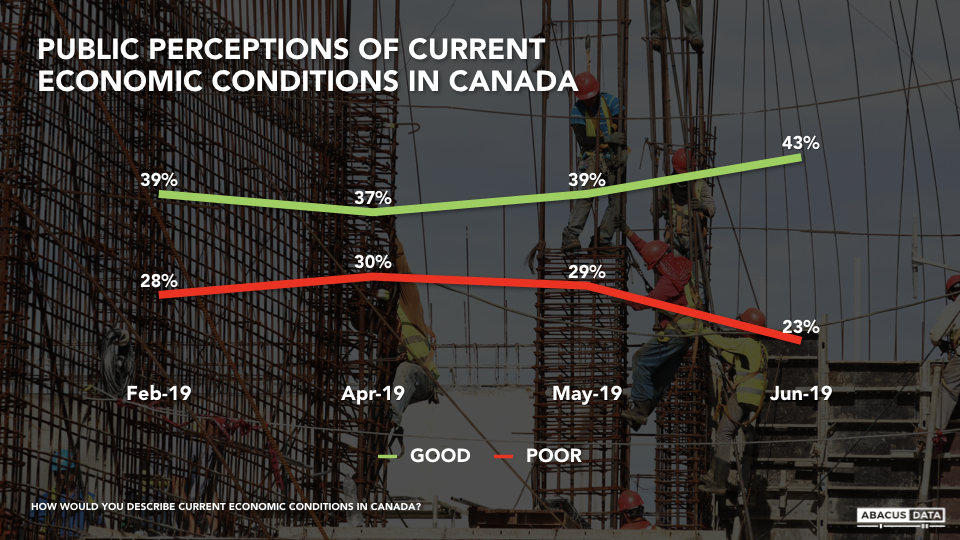
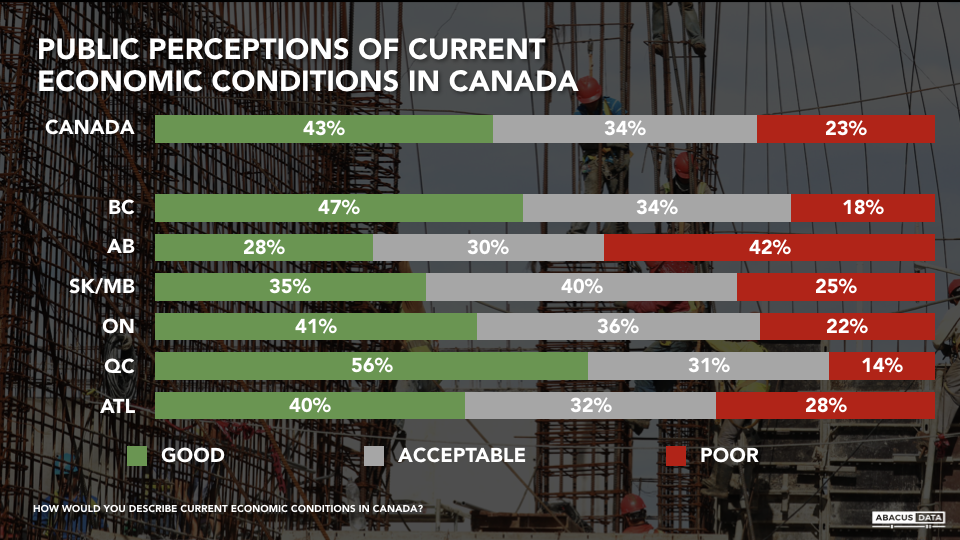
THE “ECONOMY WHERE I LIVE”
Perceptions of the national economy aside, 77% also say the economy “where they live” is good or acceptable. This indicator is up 7 points in the last two months. Over that period, we’ve seen a 9-point rise in BC, a 7-point rise in Ontario, and a 12-point rise in Alberta. Quebec results have been stable.

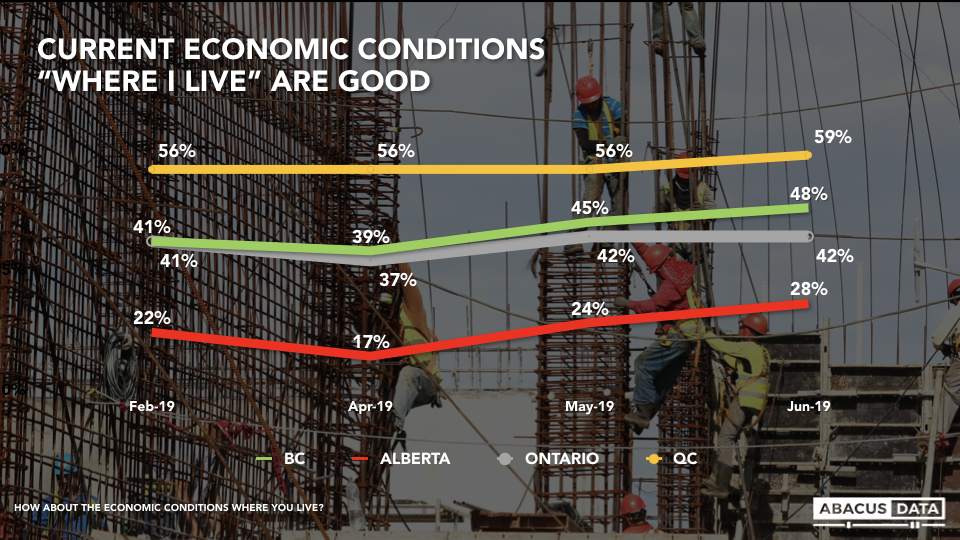

POLITICAL CHOICE
Liberal Party supporters are the most positive about the economy, and Conservatives are most negative. It is worth noting that only a quarter to a third of supporters of opposition parties say they economy is poor today.
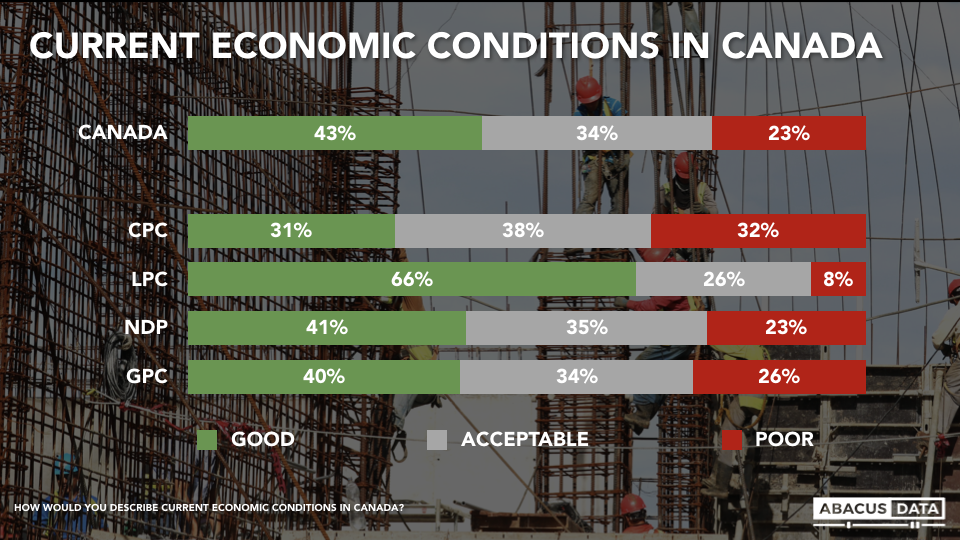
Among those who say the economy is in good healthy, 51% say they would vote Liberal if an election was today, 20% would vote Conservative, 14% NDP and 9% Green. Among those who say the economy is in acceptable or poor shape, the plurality would cast a ballot for the Conservatives.
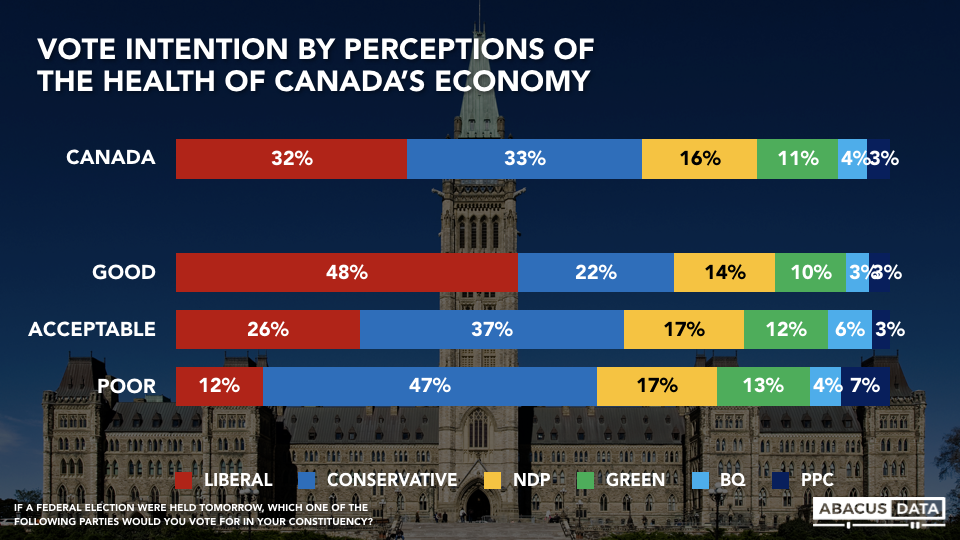
PERSONAL ECONOMIC EVALUATIONS AND MACRO CONDITIONS
When we ask people to assess their own personal economic situation, we find more people saying they are confident about their own economic situation (42%) than who are worried (30%) with the remaining (27%) saying they are a little confident and a little worried.
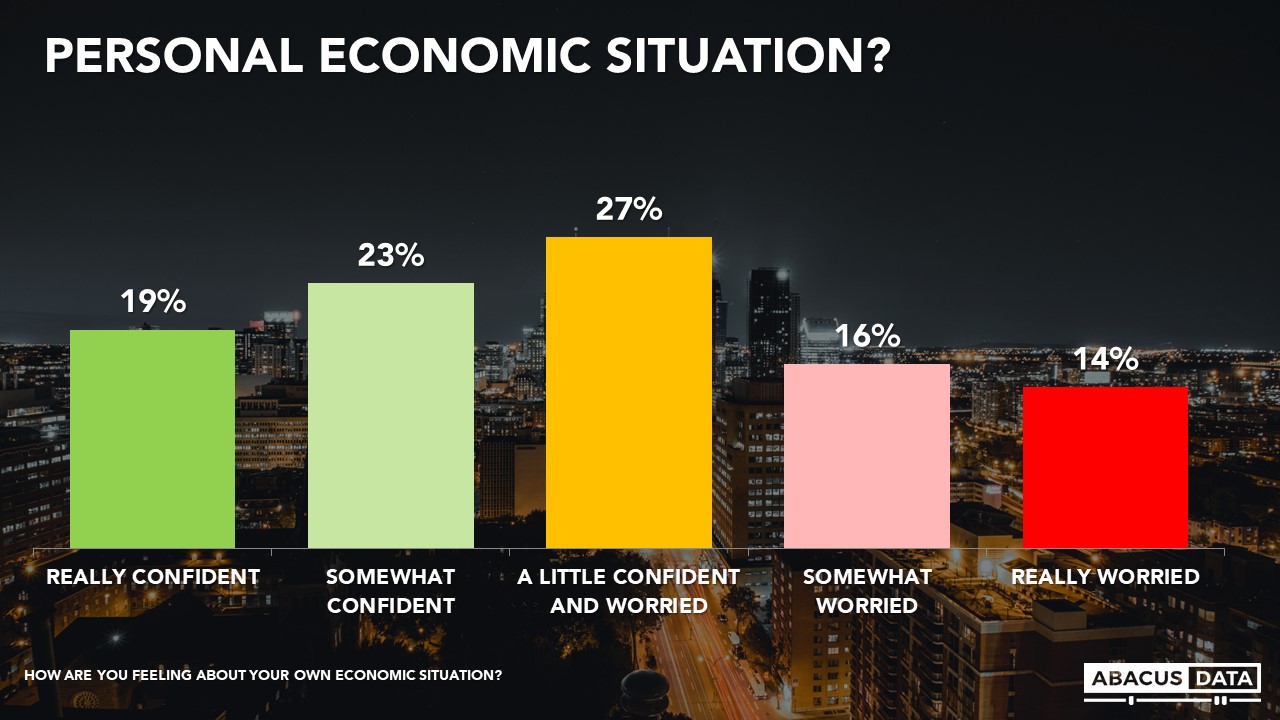
Politically, we find that Liberal supporters are more likely to be confident (59%) than opposition party supporters. But at the same time, the correlation between personal economic evaluation and vote intention does not appear strong.

We also find a correlation between one’s personal economic assessment and perceptions about how the economy is doing locally. Those confident about their personal economic situation are far more likely to assess the economy where they live as doing well than those who are worried about their economic situation. But the relationship isn’t perfect. Some who are confident in their own personal economic situation may think the economy isn’t doing well as are some worried about their personal situation who think the economy is doing well or acceptably.

UPSHOT
According to Bruce Anderson: “A range of issues other than the overall health of the economy are more prominent for many voters right at the moment, including economic questions like the cost of living and taxes.
But with only about a third of voters indicating that the economy is in poor shape, and that number shrinking a bit in recent months, this context may play to the advantage of incumbents.
For the Conservatives, the numbers indicate that they win a good share of the vote if people feel the economy is underperforming, but the heart of that battle is among people who characterize the economy as ‘acceptable’. If they can convince these voters that the economy is worse than they think or persuade them that a Conservative government can shift it from acceptable to good, Mr. Scheer’s prospects improve significantly.
At the same time, it isn’t easy for opposition politicians to manufacture negative opinion about the economy – people tend to trust their local and personal experiences to give them a sense of how things are going.”
According to David Coletto: “Less than 100 days from the election, we see an electorate feeling increasingly positive about the broad macroeconomic trends in the country. This bodes well for the Liberals as they work to rebuild its 2015 coalition and make a case for re-election. The positive economic story is recognized by most Canadians – especially those in the Liberal voter universe.
But, too often we assume that a strong economy will re-elect an incumbent government. In some cases, it lifts support for the government party because macroeconomic perceptions are linked to personal economic assessments. But increasingly, I think it has less of an impact, especially when the economy is doing well. Voters are more likely to punish a government when the economy is bad than reward it when it’s good. “
And in case you missed it, earlier this week we released a study of the top issues Canadians tell us will drive their vote this fall: https://abacusdata.ca/election-2019-is-a-battle-to-define-the-agenda/
METHODOLOGY
Our survey was conducted online with 3,092 Canadians aged 18 and over from June 28 to July 2, 2019. A random sample of panellists was invited to complete the survey from a set of partner panels based on the Lucid exchange platform. These partners are double opt-in survey panels, blended to manage out potential skews in the data from a single source.
The margin of error for a comparable probability-based random sample of the same size is +/- 1.8%, 19 times out of 20. The data were weighted according to census data to ensure that the sample matched Canada’s population according to age, gender, educational attainment, and region. Totals may not add up to 100 due to rounding.




